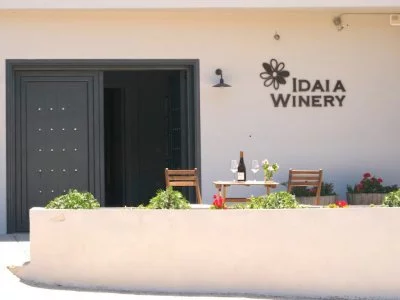Bodegas para visitar Creta
Aquí tienes una lista de las mejores bodegas para visitar en Creta. ¡Puedes reservar online tu visita a las bodegas en Creta en Winedering.com, eligiendo las bodegas marcadas con el distintivo "RESERVA ONLINE"!
¡Reservar en línea una visita a una bodega en Creta es rápido, fácil y seguro en Winedering.com!
IDAIA WINERY
(Bodega en Creta)
Domaine Paterianakis- Κτήμα Πατεριανάκη
(Bodega en Creta)
Dourakis Winery
(Bodega en Creta)
Manousakis Winery
(Bodega en Creta)
Sinadinakis Winery
(Bodega en Creta)
Minos Wines of Crete Miliarakis Bros S.A.
(Bodega en Creta)
Domaine Zacharioudakis, S. - B. Tsipa O.E.
(Bodega en Creta)
Strataridakis bros Winery
(Bodega en Creta)
ΚΡΕΤΑ ΟΛΥΜΠΙΑΣ Α.Ε.- MEDITERRA WINERY
(Bodega en Creta)
Más información sobre Creta
¿Qué bodegas visitar en Creta?
Éstas son las mejores bodegas para visitar en Creta:
- IDAIA WINERY
- Manousakis Winery
- Dourakis Winery
- Domaine Paterianakis- Κτήμα Πατεριανάκη
- Sinadinakis Winery
- Minos Wines of Crete Miliarakis Bros S.A.
- ΚΡΕΤΑ ΟΛΥΜΠΙΑΣ Α.Ε.- MEDITERRA WINERY
- Domaine Zacharioudakis, S. - B. Tsipa O.E.
¿Dónde hacer catas de vino en Creta?
Éstas son las mejores catas de vinos que puedes reservar en Creta:
Ver todas las catas de vinos en Creta
